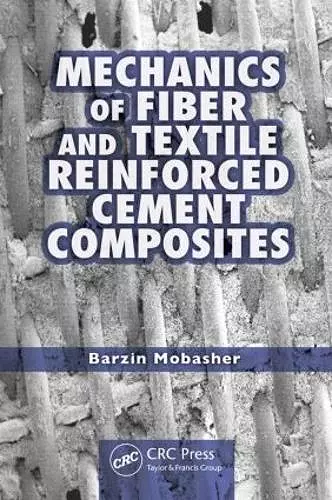Mechanics of Fiber and Textile Reinforced Cement Composites
Format:Hardback
Publisher:Taylor & Francis Inc
Published:20th Sep '11
Currently unavailable, and unfortunately no date known when it will be back
This hardback is available in another edition too:
- Paperback£65.99(9780367382384)

Among all building materials, concrete is the most commonly used—and there is a staggering demand for it. However, as we strive to build taller structures with improved seismic resistance or durable pavement with an indefinite service life, we require materials with better performance than the conventional materials used today. Considering the enormous investment in public infrastructure and society’s need to sustain it, the need for new and innovative materials for the repair and rehabilitation of civil infrastructure becomes more evident. These improved properties may be defined in terms of carbon footprint, life-cycle cost, durability, corrosion resistance, strength, ductility, and stiffness.
Addressing recent trends and future directions, Mechanics of Fiber and Textile Reinforced Cement Composites presents new opportunities for developing innovative and cost-effective materials and techniques in cement and concrete composites manufacturing, testing, and design. The book offers mathematical models, experimental results, and computational algorithms for efficient designs with fiber and textile reinforced composite systems. It explores alternative solutions using blended cements, innovative reinforcing systems, natural fibers, experimental characterization of key parameters used for design, and optimized designs. Each chapter begins with a detailed introduction, supplies a thorough overview of the existing literature, and sets forth the reasoning behind the experimentation and theory.
Documenting the composite action of fibers and textiles, the book develops and explains methods for manufacturing and testing cement composites. Methods to design and analyze structures for reduced weight, increased durability, and minimization of cement use are also examined. The book demonstrates that using a higher volume fraction of fiber systems can result in composites that are quasi-elastic plastic. Speaking to the need to
ISBN: 9781439806609
Dimensions: unknown
Weight: 1040g
474 pages